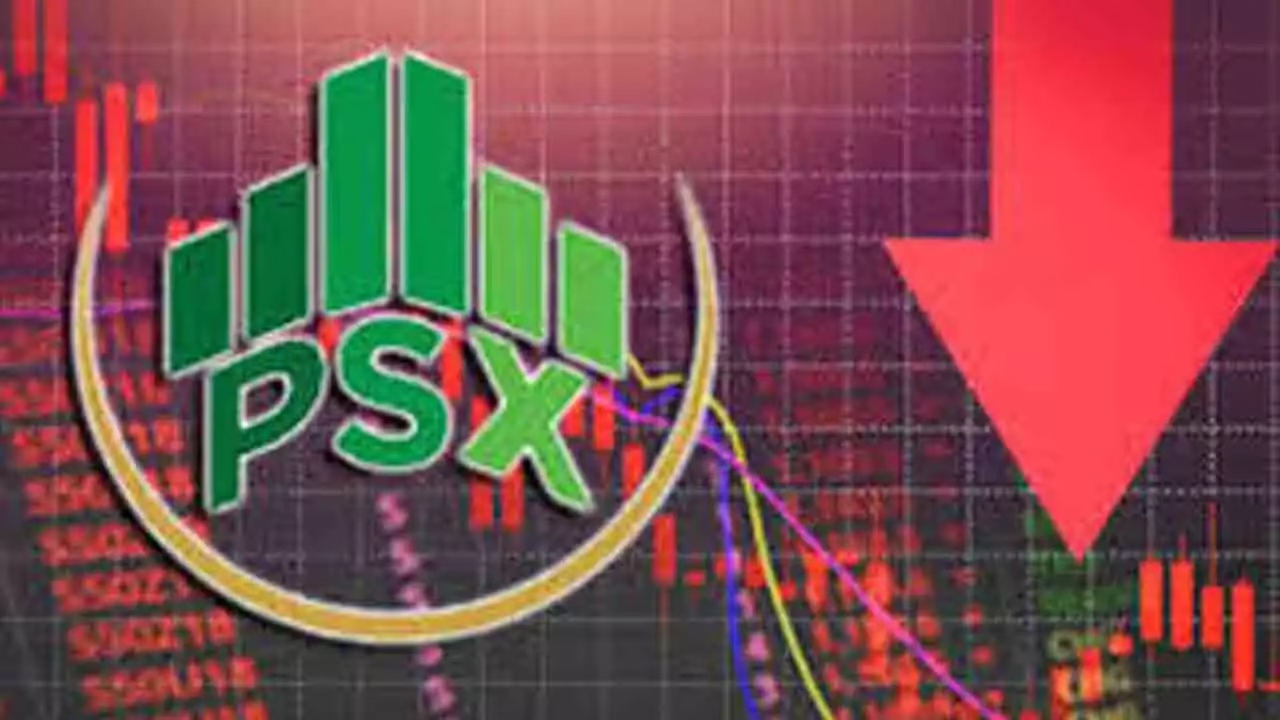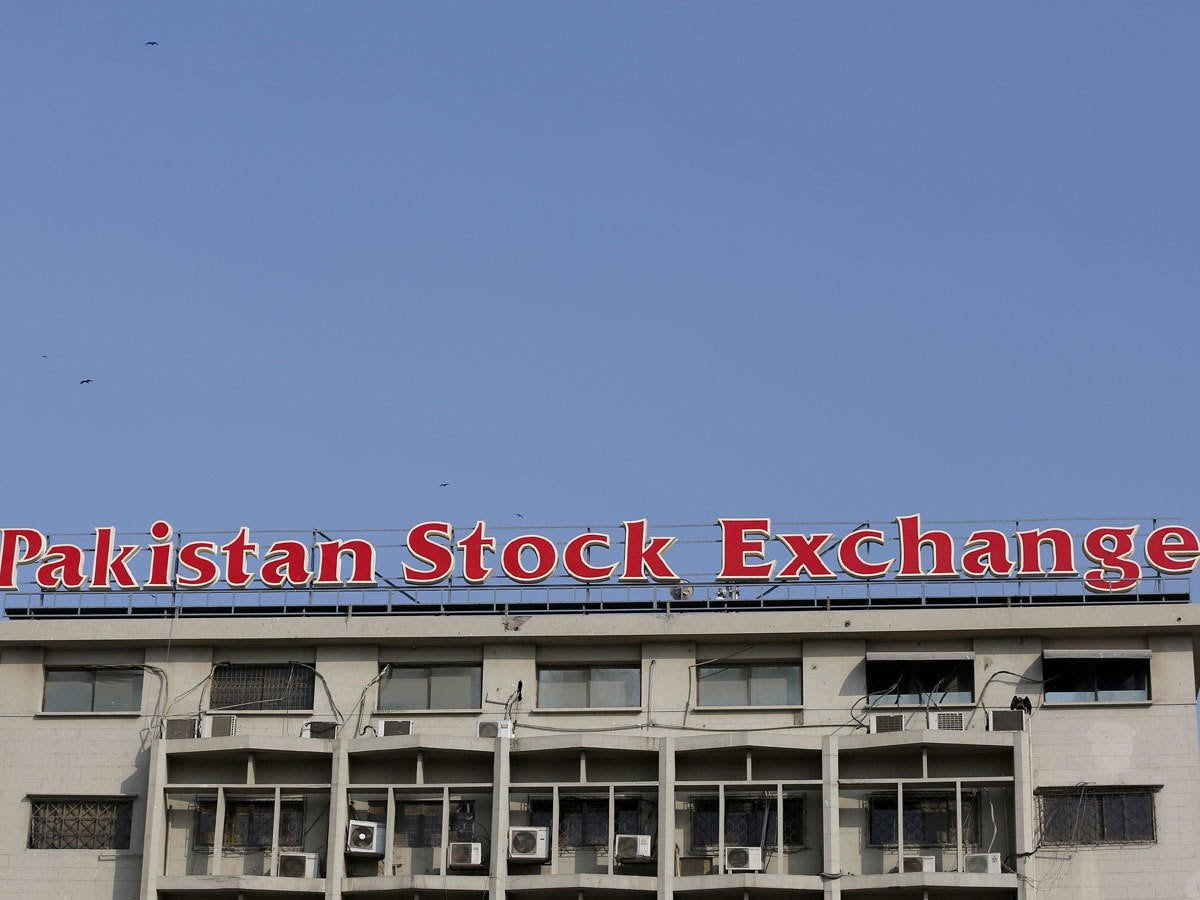The Pakistan Stock Exchange decline continued this week as the market faced heavy selling pressure, causing the benchmark KSE-100 Index to drop by 3,667 points. By the close of the trading session, the index landed at 157,870 points, marking one of the sharpest single-day setbacks in recent weeks. The drop has raised concerns among investors and analysts who are closely watching the market’s response to ongoing economic uncertainty.
Market Opens Weak and Ends Lower
The trading session began on a weak note, following yesterday’s close at 161,538 points. Despite a brief attempt at recovery early in the day, bearish sentiment dominated the market as investors opted for profit-taking and adopted a cautious approach. As a result, the Pakistan Stock Exchange decline intensified throughout the session, pushing the index well below the previous day’s level.
A total of 291 million shares were traded during the session, with the total value of transactions reaching approximately Rs 26.57 billion. While overall activity remained relatively high, the market was unable to maintain momentum, and most sectors recorded losses.
Reasons Behind the Market Pressure
There are several possible factors contributing to the ongoing Pakistan Stock Exchange decline.
Economic indicators have been mixed in recent weeks, with inflationary pressures, concerns over policy direction, and uncertainty surrounding global market trends collectively weighing on investor sentiment. Moreover, fluctuations in international commodity prices, currency movement, and upcoming corporate financial announcements have added to the cautious environment.
Foreign investment activity has also remained muted, a trend that typically influences market confidence. Local investors, sensing the uncertain mood, shifted focus from long-term positions toward short-term trading, which fueled volatility.
Sector-Wise Impact
The Pakistan Stock Exchange decline was visible across multiple sectors, including banking, energy, cement, technology, and automobile stocks. Heavyweight companies that usually support market stability also faced selling pressure, contributing significantly to the drop in the index.
The banking sector saw notable price adjustments as investors reacted to speculation about interest rate movements. Similarly, the energy sector, which has a strong impact on the overall market, experienced declines due to concerns about global oil prices and domestic gas supply challenges.
Cement and construction-related stocks, which often move in response to public development spending and seasonal demand, also contributed to the downward trend. The decline in technology stocks reflected global tech volatility and local uncertainty in the digital sector.
Investor Sentiment and Market Psychology
The mood of investors played a major role in the Pakistan Stock Exchange decline, as many felt uncertain about short-term market direction. When sentiment shifts toward caution, even fundamentally strong companies can experience temporary sell-offs.
Long-term investors generally view such declines as part of normal market behavior, especially after extended periods of growth. The KSE-100 Index has previously demonstrated resilience in bouncing back after similar corrections. However, short-term traders often react quickly to negative cues, adding to the speed and depth of the decline.
Trading Activity and Volume Trends
Despite the falling index, the trading volume of over 291 million shares shows that investor participation remained active. High volume during declines typically suggests that traders are shifting portfolios rather than exiting the market completely. This pattern indicates that the Pakistan Stock Exchange decline is driven more by adjustment and profit-taking rather than a widespread loss of confidence.
The total value of traded shares—Rs 26.57 billion—also reflects strong turnover, reinforcing that investors were actively engaged throughout the session.
Outlook for the Coming Days
Market analysts are divided regarding the short-term outlook. Some believe that the Pakistan Stock Exchange decline may continue if economic indicators remain unclear or if global markets show further instability. Others expect the market to stabilize as soon as key financial announcements or policy updates bring more clarity.
Historically, the KSE-100 Index often moves in cycles. Following large declines, the market has previously shown strong recovery once investor confidence improves. Much will depend on upcoming economic data, corporate earnings, and overall sentiment in the domestic and global financial environment.
The sharp Pakistan Stock Exchange decline has drawn attention across the financial community, signalling investor caution amid economic uncertainty. With the KSE-100 Index dropping to 157,870 points and over 291 million shares traded, the market remains active but volatile. While short-term fluctuations are likely to continue, long-term investors view such corrections as part of normal market cycles. As economic clarity increases in the coming weeks, the market is expected to find direction and potentially regain stability.



